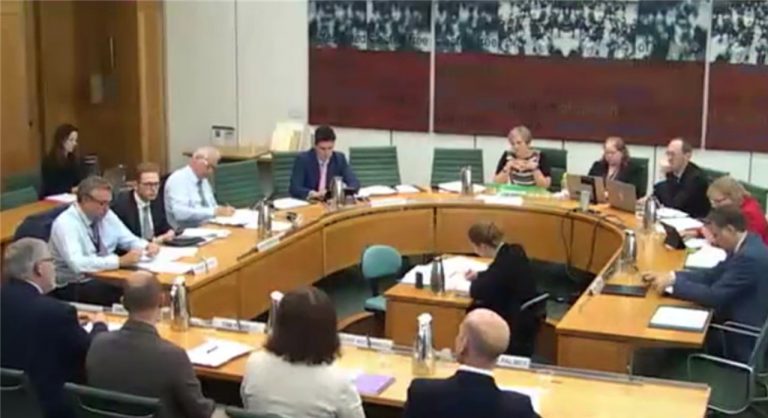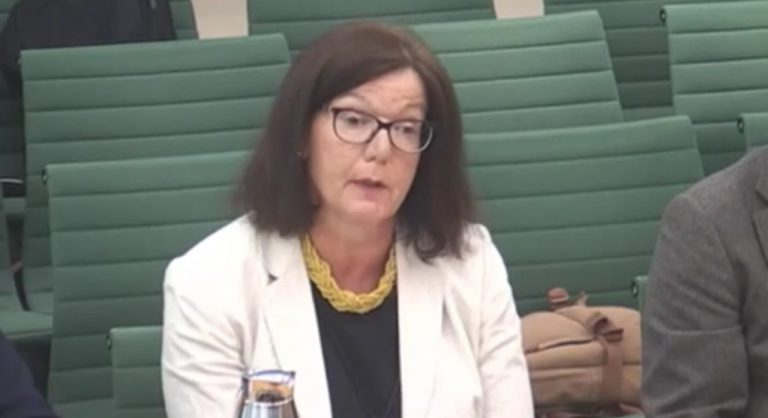Pavement Parking: PATROL’s response to DfT consultation
PATROL has responded to the Department for Transport (DfT)’s Pavement parking: options for change consultation, which focused on three potential options for local authorities in England (outside London) to tackle pavement parking.
Read PATROL’s consultation response here>>.
The three options proposed by the DfT in its consultation were:
- To rely on improvements to the existing Traffic Regulation Order (TRO) system
An effort to improve the time-consuming and burdensome process for making TROs to ensure authorities can use them to add restrictions around pavement parking more easily. This follows research carried out on behalf of the DfT>>. - To allow local authorities with civil enforcement powers to enforce against ‘Unnecessary obstruction of the pavement’
Would be achieved by splitting the ‘pavement’ from ‘road’ in regulation 103 of the Road Vehicles (Construction and Use) Regulations 1986 – which makes unnecessary obstruction of the road an offence – and adding it to the list of contraventions subject to civil enforcement under the TMA. Exemptions would be included; for example, for breakdown or emergency service vehicles or highway maintenance vehicles. - A national pavement parking prohibition (i.e. ban)
Replicating the approach currently taken in London, requiring changes to primary legislation to prohibit pavement parking, except at locations where local authorities decide to allow it.
In summary: PATROL’s consultation response
In its response>>, PATROL stated that Option 2 represents the most effective way forward in the short term, enabling all enforcement authorities to target the worst cases of pavement parking. It is a flexible solution and targeted enough to tackle the issue specific to individual communities, but applicable and actionable nationally by any civil enforcement authority.
Introducing the offence of unnecessary obstruction to Schedule 6 of the Traffic Management Act 2004 would also mean that enforcement
authorities must have regard to Statutory Guidance. This Guidance would enable the Secretary of State to provide clear examples of unnecessary
obstruction (e.g. where there is not enough room for a wheelchair to pass). Examples of where parking on the pavement is necessary could also be
included. The Guidance can also recommend enforcement policies, such as the issuing of warning notices and sensitive consideration of
representations against PCNs, aimed at achieving compliance.
The success of Option 2 is predicated on a national public information campaign (and syndicated locally) to reverse the perception that pavement
parking is permitted, while promoting behaviour change and compliance among motorists.
If Option 2 is introduced first, in time – through impact assessment – the Government and local authorities alike will be able to assess whether
primary legislation is needed to tackle the problem (a national parking prohibition, as proposed under Option 3), with clear evidence-based examples of successes and difficulties in enforcement informing the debate.
In terms of Option 1, PATROL accepted that the review of the TRO-making process is of significant importance for local authorities and to future digital mapping. PATROL recommends this work should continue and be progressed in parallel to the solution to pavement parking. Streamlining the process would assist TRO making – prohibitive or permissive – should authorities still need to use those measures, either in the short or long term.
Background to the DfT consultation
The consultation follows work by the Government in 2019 to gather evidence on the problems caused by pavement parking, as well as possible solutions. This included an Inquiry>> by the House of Commons Transport Committee last year into the issue of pavement parking in England (with a report>> published in September 2019), during which PATROL advocated for the introduction of highway obstruction by a stationary vehicle to the list of contraventions for which civil enforcement applies, contained in Part 1 of Schedule 7 of the Traffic Management Act 2004.
Further information on the DfT consultation, including detailed overviews on the advantages and disadvantages of the three options can be found on the consultation web page>>.
What about Wales?
Earlier in October, the Welsh Government announced that it had accepted all of the recommendations made by the Welsh Pavement Parking Task Force Group, which had been asked to examine ways to tackle pavement parking in towns and cities across Wales. The group includes Caroline Sheppard OBE, Chief Adjudicator of the Traffic Penalty Tribunal, and PATROL Director Louise Hutchinson, alongside officers from Welsh local authorities and the Welsh Local Government Association and the British Parking Association.
The recommendations from the Task Force Group, which the Welsh Government accepted all of in principle, were focused on the premise that parking on the pavement should be ‘…tackled by changing driver behaviour through raising awareness that pavements are for pedestrians and not for vehicles, backed-up by the deterrent of effective enforcement.’
The recommendations included:
- the passing of secondary legislation to add the existing offence of ‘obstruction’ (under Regulation 103 of the Road Vehicles (Construction and Use) Regulations 1986) to the list of enforceable contraventions to enable local authorities to carry out civil enforcement of pavement parking
- a review by local authorities of locations where pavement parking could be permitted through Traffic Regulation Orders (TROs), as well as a review by the Welsh Government of legislation underpinning the TRO-making process
- amends to existing Statutory and Operational guidance on Civil Parking Enforcement to advise local authorities how to operate their new powers of enforcement
- delivery of an effective communications and promotion strategy, in conjunction with local authorities, to inform the public that the enforcement of pavement parking is changing and to promote driver compliance
- the establishment of a monitoring and evaluation framework, so that an assessment can be made of the impact and effectiveness of the new enforcement regime.
View the recommendations as part of the Welsh Government’s response here>>.
Deputy Transport Minister, Lee Waters MS, said: “We recognise that in some streets there are too many cars for the space available and we don’t want to penalise people who have no alternative. This approach lets Councils target hot spots and vary its approach depending on local circumstances.”
While further policy development and consultation is set to take place, the intention of the Welsh Government is for enforcement to commence by July 2022, with a communications plan and promotional strategy to launch prior to this date. The operation of the new scheme will be ‘closely monitored and evaluated to ensure success and identify any further changes that may be needed.’
PATROL and pavement parking:
Previous activity timeline
15 May 2019:
PATROL’s initial submission to the Inquiry was based on the original briefing document and encompassed later feedback received from PATROL member authorities. Access a copy here>>
19 June 2019:
PATROL was asked to give oral evidence to the Transport Committee on Wednesday 19 June 2019. This was provided by Louise Hutchinson, Director, PATROL. Other representatives invited to give evidence during the session included:
-
- Dr Rachel Lee, Policy and Research Coordinator, Living Streets
- Ian Taylor, Director, Alliance of British Drivers
- Chris Theobald, Public Affairs Manager, Guide Dogs
- Simon Botterill, Transport and Traffic, Design and Delivery Manager, Sheffield City Council
- Spencer Palmer, Director, Transport and Mobility, London Councils
- Tim Young, Project Engineer (Policy and Performance), Norfolk County Council.

Louise was asked a number of questions focused on the procedural and political implications of implementing a national ban (including the role of Traffic Regulation Orders [TROs]), which preceded further questions around alternative solutions, including the introduction of highway obstruction as a new civil enforcement contravention. This followed an earlier session, which focused on the impact of pavement parking on people and vulnerable groups.

Click here>> to watch a video of the full oral evidence given to the Committee on 19 June 2019
(PATROL evidence starts at 10:40:54)
Read a transcript of the full session here>>
27 June 2019:
PATROL provided an additional submission to the Inquiry, expanding on some of the points that came up during the earlier oral evidence session. Access a copy here>>
23 July 2019:
The Chief Adjudicator of the Traffic Penalty Tribunal, Caroline Sheppard OBE, in consultation with Louise Hutchinson, provided a further submission to the Inquiry, concerning a potential Behaviour Change Strategy to tackle the issue of pavement parking. Access a copy here>>
Find out more about the Transport Committee Inquiry and view all submissions and evidence provided here>>
Background to the issue
The challenge of pavement parking
Pavement parking poses several problems for local authorities.
-
- Inconsiderate parking creates potentially dangerous hazards for pedestrians, particularly those that are vulnerable, such as the elderly, disabled or families with pushchairs.
- Damage to paths and pavements is also hazardous and costly to repair.
- Members of the public refer cases of vehicles causing an obstruction and assume that local authorities can take enforcement action. Currently, this is a matter for the police rather than local authority.
A ban on pavement parking was introduced in London in 1974 and (as of April 2019) the Scottish Government has agreed in principle to implement a nationwide ban on pavement parking.
Authorities in England (outside London) and Wales, however, have only limited powers to enforce pavement parking, where:
-
- vehicles are parked in contravention of existing waiting restrictions;
- a designated area-wide ban is in place, based on Traffic Regulation Orders (TROs) and signage;
- the vehicle parked is a ‘heavy commercial vehicle’, with an operating weight of over 7.5 tonnes.
As of July 2019, Lee Waters AM, Deputy Minister for Economy and Transport, Welsh Government, announcement that a Taskforce Group was to be set up to consider the issues around pavement parking and to decide how best to implement a solution to this problem in Wales.
PATROL workshop findings
The PATROL pavement parking workshops confirmed that pavement parking remains an issue; however, the challenge differs from authority to authority, and a ‘one-size-fits-all’ approach, such as a nationwide pavement parking ban, could create additional challenges for communities; for example, where there is:
-
- a need for pavement parking on some roads, such as narrow residential streets
- high-cost and resource implications around implementing a blanket ban in areas where high levels of permitted pavement parking are required.
A number of practical concerns were raised by members during the course of the workshops, including:
-
- Inflexibility, in terms of the varying needs of local communities and their built environment, and the implications for disapplying the statutory instrument, should a nationwide ban not be appropriate in a specific locality. There will inevitably be some streets where there will be a range of views, implications of road layout and use factors that contribute to the debate about whether pavement parking should / could be banned or not;
- the significant costs associated with disapplying the statutory instrument to allow pavement parking within particular areas of a local community (including surveys, Traffic Regulation Orders and consultation);
- the increased signage that would accompany the introduction of such areas of permitted pavement parking.


